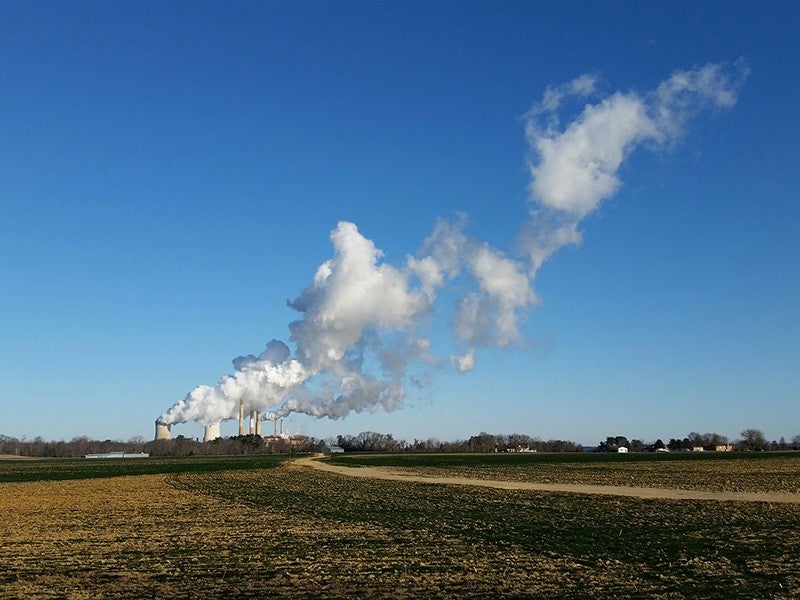Maryland Agencies to Mediate Civil Rights Complaint Over Prince George’s County Power Plant
Community groups seek relief from racially discriminatory pollution burden and health harms
Three Maryland agencies have agreed to enter mediation with Brandywine area organizations, represented by Earthjustice, after the groups filed a federal civil rights complaint over the state’s decision to permit a gas-fired power plant in Brandywine that would have racially disproportionate pollution impacts. The groups hope talks lead to improvements in state procedures for approving and siting pollution sources and long-overdue relief for overburdened communities.
Brandywine is located in an unincorporated portion of Prince George’s County that is 72% African-American.
The Brandywine TB Coalition and Patuxent Riverkeeper filed the complaint in May against the Maryland Public Service Commission, Department of the Environment, and Department of Natural Resources. While the complaint does not allege that the Maryland agencies purposefully targeted African Americans for worse treatment, the complaint describes how the local community was cut out of the decision to permit the Mattawoman power plant, defeating the goals of community engagement and participation, and how the plant will have the discriminatory effect of subjecting a majority-African American community to excessive air pollution, traffic, noise, and other unfair burdens.
As recipients of federal funds, the Maryland state agencies have an obligation under Title VI of the federal Civil Rights Act to avoid causing an unjustified unequal impact on the basis of race, and to consider the risk of unequal impacts before approving a project.
The complaint was filed with the offices of civil rights at the U.S. Environmental Protection Agency and U.S. Department of Transportation because those federal agencies fund the relevant Maryland agencies. EPA and DOT jointly asserted jurisdiction over the complaint on June 14, triggering a federal investigation. The agencies notified the groups that filed the complaint on Oct. 6 that the probe would be put on hold pending the outcome of the mediation talks.
Brandywine is an unincorporated community in Prince George’s County that is 72 percent African-American. The 990-megawatt Mattawoman power plant is the fifth large fossil-fuel power plant that Maryland has permitted to operate within 13 miles of the community, and it will be located about a half mile from the local elementary school. Brandywine residents also face pollution from a coal-ash disposal landfill, a contaminated superfund site, toxic waste treatment facilities, multiple sand and gravel mines, and highly congested roadways.
Brandywine experiences unhealthy levels of air pollution. According to the Mattawoman company’s own calculations, pollution from the new power plant will combine with existing pollution to cause excessive levels of nitrogen dioxide, which is linked to heart disease, asthma, and stroke. Prince George’s County, which includes Brandywine, is already in violation of national air quality standards for ozone, which is linked to asthma, yet the new power plant is authorized to emit pollutants that can worsen the ozone problem.
The complainants, the Brandywine TB Coalition and Patuxent Riverkeeper, are concerned about the cumulative, combined effects of the multiple pollution sources in the community, as well as increasing air pollution, noise pollution, traffic congestion, and depressed property values.
Kamita Gray, president of the Brandywine TB Coalition, said she will take a cautious, wait-and-see approach to the discussions with the state, in hopes that they will not continue to defend a position of non-compliance with civil rights laws.
“This community is standing up to say enough is enough along with many other communities across the county. I’m not my neighbor’s keeper, I am my neighbor and it’s time to stand together in ecological unity in determining our own fates and destinies. Maryland must address the concerns of Brandywine residents and comply with the civil rights laws, Gray said.
We must continue for the children and future generations to grow and develop various new and creative tactics and strategies within our communities for clean land, air, water and a healthy quality of life.” Gray added.
“We know that high-polluting power plants generally end up in areas with the least political power and the most people of color—and also in neighborhoods where the clean air, water and open space are most at risk,” said Fred Tutman, the Patuxent Riverkeeper. “It’s time for such discrimination to end.”
Earthjustice attorney Neil Gormley, who represents the groups, said, “These talks represent an opportunity for Maryland to do the right thing. We hope the agencies will decide to work with us to provide relief for these overburdened communities, increase the transparency and fairness of state decision-making procedures, and finally come into compliance with civil rights laws.”
Additional Resources

Additional Resources
About Earthjustice
Earthjustice is the premier nonprofit environmental law organization. We wield the power of law and the strength of partnership to protect people's health, to preserve magnificent places and wildlife, to advance clean energy, and to combat climate change. We are here because the earth needs a good lawyer.
